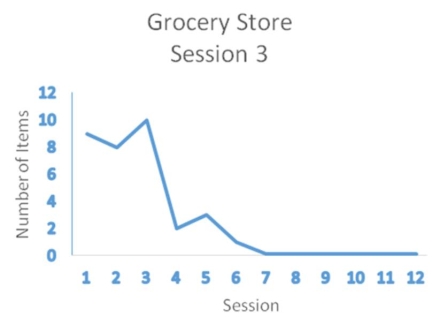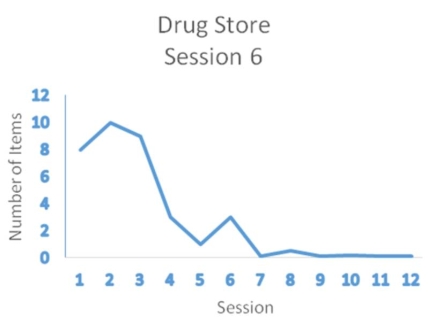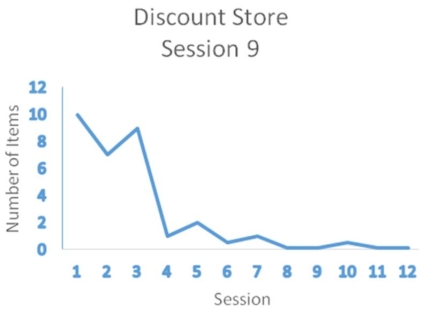Suppose the following data were observed for an individual who sought treatment for kleptomania.Using a single-case experiment,the psychologist used "covert sensitization" to treat the stealing behavior across a number of different situations (e.g.,stealing at the grocery store,drug store,discount store).Covert sensitization was applied systematically to each situation.The psychologist concluded that the treatment was very effective for reducing kleptomania.
As shown in the following graphs,an initial baseline period was conducted for each of three situations.The session in which covert sensitization was implemented is indicated with each situation (session 3,6,or 9).The dependent variable is the number of shoplifted items. 

 What is your conclusion about the effectiveness of treatment? Explain your answer.
What is your conclusion about the effectiveness of treatment? Explain your answer.
Definitions:
Completed Contract Method
An accounting technique used to recognize revenue and expenses of long-term contracts only after the project is completed.
Revenue Recognition
This is an accounting principle that outlines the specific conditions under which revenue is recognized and can be reported in financial statements.
Percentage-Of-Completion Method
The percentage-of-completion method is an accounting approach used for recognizing the revenue and expenses of long-term contracts based on the progress of the work performed.
Revenue Recognition
The process of recording income when it is earned and realizable, according to specific criteria, regardless of when the cash is received.
Q1: Which of the following is not an
Q1: Which of the following is a measure
Q3: The most common solution to the problem
Q12: A physician wants to test the effectiveness
Q16: The 'Model of Socially Conscious Consumerism' includes
Q21: There is little concern that a lack
Q38: Experiments in natural settings are likely to
Q40: In the Milgram obedience studies,deception took place
Q51: One of the main ways that true
Q58: In a simple random sample,every individual in